Relationships are hard, yet we often expect them to be the kind of love stories we see on television, movies or hear about in love songs. When our relationship doesn’t measure up we are disappointed and often give up without really trying. We find ourselves thinking we made a mistake in choosing our partner and feel if the relationship was truly meant to be it wouldn’t be so hard. Some force themselves to make the relationship “work” because of cultural, religious or family values and social pressures and stay in an unhappy relationship, surviving and feeling trapped, to avoid judgment or feeling like a failure for it.
The reality is most of us didn’t grow up being taught how to form healthy relationships and we have a limited concept that relationships are either good or bad. However, there are a few things we can do to improve our relationship skills and do our part in becoming the best partner we can possibly be.
First, we must recognize our responsibility and not get caught up blaming it all on our partner, even when it appears our partner is the one with the problem. Chances are that our partner is protesting with their words or actions about something we may or may not be doing that is making them feel insecure or disconnected in the relationship.
Second, we must understand the problem. If it involves something that is out of our control to fix, like something someone else did, our partner may just be looking for us to acknowledge and validate their experience. If it involves a behavior we do or don’t do or setting a boundary with someone who doesn’t seem to respect the relationship or our partner, then our partner may be needing active reassurance, which may require us to work on making a change or taking some sort of action.
Third, we must get curious and find out what our partner thinks the best solution is. If our partner has a solution that requires both of us to do something to meet each other half-way and it seems fair, then you may be in luck and the issue may not have been that bad after all. Or perhaps, it may involve you doing something that seems reasonable to you, because if it were the other way around you’d want that from your partner… in this case you’re also in luck. You also want to make sure to come up with your own solution options before approaching your partner so your partner won’t feel like you’re asking them to do all the work in the relationship.
When the communication in the relationship becomes too complicated or we feel disconnected and nothing seems to work, this is when professional help is necessary if you want to save the relationship. Couples who experience a major break down in communication or reach a state of constant disconnection in the relationship may have allowed too many issues in the relationship to go unaddressed and this created a crisis. Sometimes this happens when one partner suffers with anxiety, depression or doesn’t feel emotionally stable due to having experienced a traumatic event or the loss of someone or something significant; in these cases couple’s counseling can be really helpful for the partner in need to know how to ask for support and separate their struggle from the reality of the relationship and for the other partner to have support in supporting their struggling partner.
IMPORTANT NOTE: Couples who have experienced violence or threats of violence in the relationship are not considered appropriate to receive couple’s counseling. Couple’s counseling requires a certain level of emotional safety in order for partners to openly express their thoughts and emotions about their partner and the relationship without running the risk of being hurt physically, psychologically or emotionally. In these cases, individual counseling for both partners is recommended first. In some cases, a couple’s counselor will agree to work with a couple only if they each have an individual counselor, the violent partner recognizes their problem and is motivated to change it and both partners agree to sign a no-violence contract and safety plan.
THINGS TO CONSIDER IN FINDING COUPLE’S COUNSELING
CONFIDENTIALITY: Counselors who are licensed or working under the license of a clinical supervisor are regulated by their state’s governing board and among the legal and ethical rules they must follow, confidentiality is one of them. The exceptions to confidentiality (situations where a counselor has to break confidentiality and notify authorities) include situations where the client is danger to themselves or another or cases where child abuse or neglect, or abuse of a dependent adult with a disability or over the age of 65 is suspected.
CULTURAL COMPETENCE: It is always best to work with a counselor who understands our cultural background. This doesn’t mean that working with someone who is not part of your culture is wrong. You just want to make sure they understand your culture, because this does matter. In order to make sure a counselor understands your culture, if they are not of your same ethnic or cultural background, you may ask them to share with you what they know about your culture and what they’ve done to educate themselves.
TRAINING & QUALIFICATIONS: Working with couples and relationships is a specialization and most counselors are only required to complete one course in their graduate program on this subject, which is not enough. While it is true there are some highly skilled counselors without specialized training, whenever possible, you want to make sure your counselor has specialized training in working with couples. It’s okay to ask questions about a counselor’s training.
COMMUNITY COUNSELING CENTERS: Most communities have at least one local community counseling center that typically doesn’t turn people away for inability to pay. These are usually training centers for counseling students working under the license of a clinical supervisor. Students are eager to learn and help their clients, don’t be quick to think you will not get quality services at a community counseling center. Most of these are funded by government grants and private donations so their services are typically more affordable and some will provide services for free if you qualify. To find your closest community counseling center you may call 211 or visit their website HERE.
PRIVATE PRACTICE CLINICIANS: These clinicians are often working independently or as an employee for another clinician. Often, this is where you will find the most experienced counselors with specialized training. You can find these counselors listed on different directories by doing a simple google search. Some may work with insurance, others will only provide you a receipt so that you may file for reimbursement with your insurance company and others will only work with private pay clients—some will also have a few low fee slots available, so you want to make sure to ask about this.
MEDICAL INSURANCE: Most insurance companies do not cover couple’s counseling sessions unless these are considered “a medical necessity” for one of the partners. Which means one partner needs to meet criteria to receive a clinical diagnosis for a mental health condition. If you or your partner are experiencing anxiety or depression or any other mental health concern you may be eligible for this.
STEPS TO CONNECT WITH A COUPLE’S COUNSELOR
EXPLORE YOUR OPTIONS: Is using your medical insurance an option? If so, you can ask them to give you referrals. If filing a claim for reimbursement is an option, you will have more flexibility in choosing a counselor, find out if your insurance plan reimburses for out-of-network providers, the reimbursement rate and the steps you’d have to take to file a claim. Otherwise, consider identifying a couple community counseling centers and a couple private practice counselors to see what’s a better fit for your situation.
PREPARE TO REACH OUT: Identify a list of questions you may consider important when speaking to potential counselors (i.e. availability, frequency, expected duration of treatment, fees, length of session, cancellation policy, etc.)
REACH OUT: Community Counseling Centers may or may not offer the option of you connecting with a counselor before you get to meet with them for the first time, if this is important for you, make the request to speak with the counselor you’d be working with. Most private practice counselors offer free phone consultations where you can ask question and find out if they are a good fit for you and where they can get a sense of whether or not they can help you. Make sure you call around and speak to at least a couple counselors.
MAKE YOUR PICK: It’s okay to schedule an appointment and decide the counselor is not a good fit. It is important both your partner and you feel comfortable enough with the counselor in order to get to do the important work. Counselors know it doesn’t always work out and we’re always ready to offer referrals of other trusted colleagues that we think you may find a better fit.
CHECK YOUR EXPECTATIONS: If you are expecting the counselor will “fix” your partner, already you have set yourself up for disappointment. Couple’s counselors are there to look out for your relationship, not to take sides or fix partners. They are there to show you how to communicate more effectively, to help you identify what things get in the way and support you and your partner at learning to work together once again. This will require work from both you and your partner.







